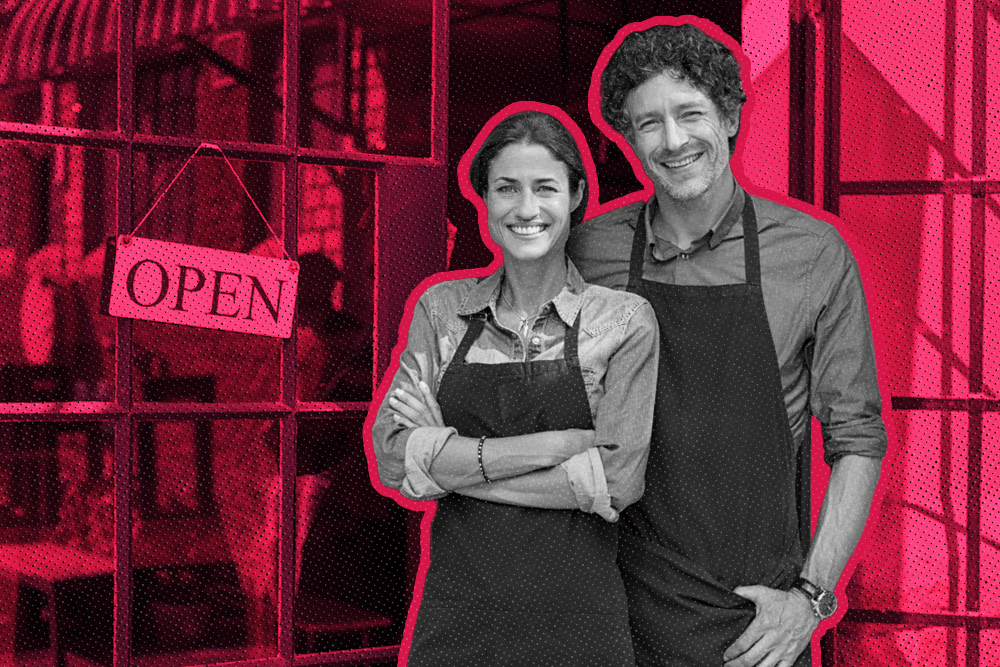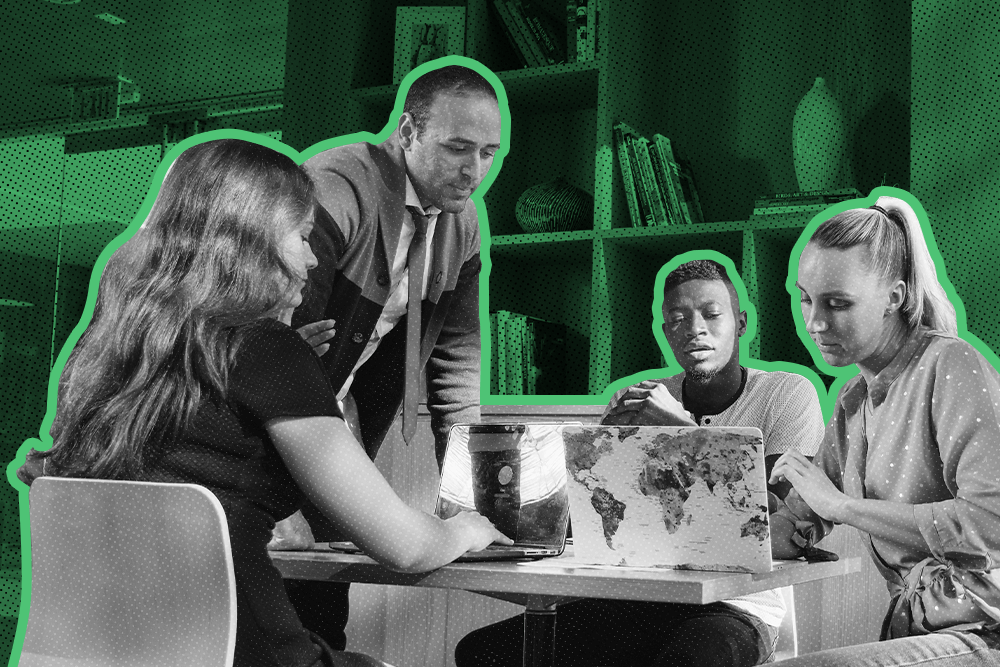
The fallout of COVID-19 has hit every industry differently, but there’s no mistake that it’s caused each and every business to make a shift of some kind.
We’ve been talking to our customers in different industries about what this pandemic has meant to them, how they’ve adapted to current times, and what preparations they’ve made for what may come.
1. The wholesale business that turned direct-to-consumer overnight
 |
HALF UNITED has always had a mission to help others. Their business was built to fight childhood hunger, and they do it through selling apparel and fashion accessories.
For every product sold, HALF UNITED gives 7 meals to a child in need, in the US and around the world. They describe the brand as “fashion that feeds” and are more than halfway to a million meals provided.
Pre-COVID, 95% of HALF UNITED’s business was selling wholesale to boutiques and department stores. When store after store began closing down, they knew they had to “pivot or die,” describes Carmin Black, HALF UNITED’s Co-Founder and CEO.
With schools and their lunch programs closing down, and parents struggling to make ends meet, they knew children and communities needed their support now more than ever.
In other words, they knew that shutting down was simply not an option.
In March, their team of 5 pivoted the business from 5% to 100% direct-to-consumer in order to keep the business going.
They dove in head-first, teaching themselves online marketing and rewriting their entire marketing plan. The saving grace for HALF UNITED is that they had previously invested in a presence on social media. They knew they needed one, they just couldn’t have predicted how much they would need it to lean on today.
They’ve also revisited some marketing channels they had thought about in the past but never really had the time (or the pressing need) to look into. With hiring on pause, their COO has pivoted her own role to building an ambassador program — something they had thought about in the past but never prioritized.
They’ve even pivoted their use of Close: “We’ve been using Close to manage our wholesale relationships,” says Black, “now we’re using it for PR and influencer outreach.”
Although they’re still in close communication with their largest department store partners, their smaller accounts are on hold for the time being. When the wholesale side of the business picks back up again, they’ll have all of that historical context to ensure they won’t skip a beat, even if a new Account Manager comes on board.
2. The business that launched two weeks before a shut-down
After a year in beta testing, Hannah Olson couldn’t wait to officially launch her business, Chronically Capable, into the world. The website, an online platform that connects employers and chronically ill candidates, went live at the end of February — mere weeks before COVID-19 changed everything.
It was a huge accomplishment to have 14,000 candidates already signed up to the website, but they also rely on employers to post those roles. In March, open roles began to dwindle around the country and around the globe.
 |
With so many companies halting their hiring initiatives, Hannah knows it’s becoming even harder, and even more critical, for her community to find productive employment. To help get them the most opportunities possible, she made the swift decision to waive all employer registration fees and let employers post their roles for free. Their number one priority right now is to connect their candidates with as many roles as possible, in particular those that can be done remotely.
Their small (and always remote) team has been using Close to do as much cold outreach as they can. While Hannah admits it’s been “difficult to get a response right now,” her team is remaining persistent with cold calling and following up using email sequences in Close.
They’re also using Close to follow up with the media, a channel they rely on for building awareness. For employers already using their platform, Hannah and the team are using their expertise to share email content to help them support their current staff who may fall ill.
3. The communications firm that stepped up to become an advisor for its clients
Matterlab provides strategic marketing and communications support to clients in the education sector. Their small, 7-person team produces communications campaigns and supports with change management and brand building. The top priority for Matterlab has always been using their expertise to best serve their clients and constantly adapt to their needs.
The unprecedented times of COVID-19 have been no different. Although they’re a 2-year old business, “we operate in a startup mentality,” says Lane Lowe, Matterlab’s VP of Marketing.
They quickly developed an internal “task force” and launched a new service to offer schools, districts, and education nonprofits communications support relating specifically to COVID-19. Their priority has been getting their clients the information and support they need at this time, and so far, clients have been grateful for that support.
 |
Matterlab’s team has acted as a trusted advisor to their clients, taking on work like drafting letters to go home to families, and taking part in discussions around when schools should reopen safely.
“We’re rolling out content in real-time,” says Lane, and “constantly updating resources to make sure students and families across the country have access to the right information.”
During this time, Matterlab has been making communication with existing clients their top priority. The first move they made was sending a bulk email to their client list in Close to see who might be interested in this new offering. Getting this early feedback helped them gauge demand for this new content and how they could best serve their audience. That gave them a starting point for some of their initial pieces of content, and since then, they’ve been iterating with the rapid changes.
They’re continuing to rely on Close for much more than just data management and tracking - the platform actually helps bring a greater “human element” to the work that they do.
Using their brand missions as a guide
While all three of these businesses have completely different models and clientele, they all used their missions to help guide them throughout this transition. “It’s an interesting moment for every business to really focus on their core purpose,” says Lane from Matterlab, “and see how that can help them solve problems, problems that didn’t even exist a few weeks ago.”
 |
For HALF UNITED, their sales are directly linked to solving hunger in their communities. “This affects people in need,” says Carmin, “and we’re in business to support them. The longer we stay down the less we can help.” They’ve been pouring as many funds as they can right now into local organizations that fulfill their mission, and working with them to “rally together and fill the gaps” for students out of school for the summer. They’ve even seen contributions to local food banks double during this time.
Although there are fewer companies hiring overall, Hannah and the Chronically Capable team remain optimistic and true to their own mission. Their community was already in need of jobs and this drop in hiring is making things even harder for them — so they aren’t giving up. They plan to continue getting employers to test their platform for free and build relationships with those who will start hiring again when they’re ready.
Finding the silver linings
All three leaders were in agreement on one other thing: Even after this pandemic, business will never look the same.
Even still, they’re all doing their best to look on the bright side.
For HALF UNITED, this means diversifying their strategy. “You need to have measures in place in case something happens,” Carmin says, “and not put your eggs in one basket.”
Although it was not by choice, their team has used this time to learn new skills and double down on how they can use online sales as a whole new channel. These tactics were never enough of a priority before the pandemic, but now the team has dusted off their old brainstorming documents and got to work.
 |
Hannah from Chronically Capable also believes there is a silver lining in this situation for them. When they launched, one of their biggest struggles was the stigma of chronic illness, especially in the workplace.
Their community also benefits from remote roles in particular, and during their beta testing, they faced struggles with businesses being inflexible and not open to hiring remote employees. With everything that’s happened, employers overall have become more aware and empathetic to illness at work and more accommodating to remote work arrangements.
“In a way, it’s normalizing illness,” she says, “and employers who maybe didn’t think remote work was possible before are realizing now that it’s possible.”
From learning new skills to building awareness and watching the public rally together, there have been some bright spots through this hard time.
For businesses, one thing is for sure: Change is inevitable, and founders will find a way to adapt the best that they can.
 |
There's a right way and a wrong way to communicate with customers during the ongoing crisis. Want some inspiration? We've curated some of the best real-world company crisis emails in our latest resource, Good Crisis Emails.










